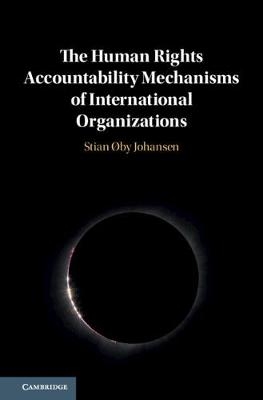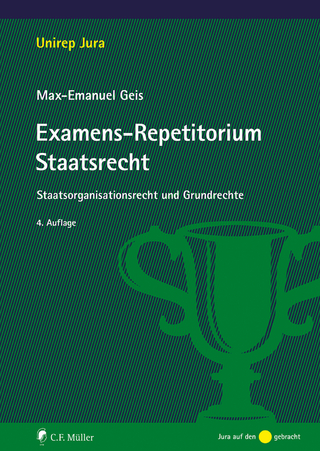
The Human Rights Accountability Mechanisms of International Organizations
Seiten
2020
Cambridge University Press (Verlag)
978-1-108-49567-7 (ISBN)
Cambridge University Press (Verlag)
978-1-108-49567-7 (ISBN)
International organizations are becoming increasingly powerful. Consequently, they are now more capable than ever of violating the rights of individuals. This book establishes a framework for analyzing and assessing the human rights accountability mechanisms of international organizations, and applies it to three case studies.
International organizations are becoming increasingly powerful. Today, they affect the lives of individuals across the globe through their decisions and conduct. Consequently, international organizations are more capable of violating the human rights of individuals. But how can they be held to account for such violations? This book studies the procedural mechanisms that may hold international organizations to account for their human rights violations. It establishes a general framework for identifying, analyzing, and assessing the accountability mechanisms of international organizations. This general framework is then applied to three distinct cases: the EU's Common Security and Defence Policy missions, refugee camp administration by the UNHCR, and detention by the International Criminal Court. The overall conclusion is that none of the existing accountability mechanisms across the three cases fulfill the normative requirements set out in the general framework. However, there are significant variations between cases, and between different types of accountability mechanisms.
International organizations are becoming increasingly powerful. Today, they affect the lives of individuals across the globe through their decisions and conduct. Consequently, international organizations are more capable of violating the human rights of individuals. But how can they be held to account for such violations? This book studies the procedural mechanisms that may hold international organizations to account for their human rights violations. It establishes a general framework for identifying, analyzing, and assessing the accountability mechanisms of international organizations. This general framework is then applied to three distinct cases: the EU's Common Security and Defence Policy missions, refugee camp administration by the UNHCR, and detention by the International Criminal Court. The overall conclusion is that none of the existing accountability mechanisms across the three cases fulfill the normative requirements set out in the general framework. However, there are significant variations between cases, and between different types of accountability mechanisms.
Stian Øby Johansen is Associate Professor at the Centre for European Law at the University of Oslo. His scholarship has appeared in European Papers, International and Comparative Law Quarterly, German Law Journal, and Oxford International Organizations. He is Secretary of the Norwegian Branch of the International Law Association.
1. Introduction; Part I. A framework: 2. The responsibility of IOs for human rights violations; 3. IO accountability mechanisms: definition, typology, and assessment; Part II. Three case studies: 4. Case study: The EU's Common Security and Defence Policy missions; 5. Case study: UNHCR-administered refugee camps; 6. Case study: The ICC Detention Centre; 7. Conclusion.
| Erscheinungsdatum | 13.07.2020 |
|---|---|
| Zusatzinfo | Worked examples or Exercises |
| Verlagsort | Cambridge |
| Sprache | englisch |
| Maße | 158 x 236 mm |
| Gewicht | 690 g |
| Themenwelt | Recht / Steuern ► EU / Internationales Recht |
| Recht / Steuern ► Öffentliches Recht ► Verfassungsrecht | |
| Recht / Steuern ► Öffentliches Recht ► Völkerrecht | |
| Sozialwissenschaften ► Politik / Verwaltung | |
| ISBN-10 | 1-108-49567-2 / 1108495672 |
| ISBN-13 | 978-1-108-49567-7 / 9781108495677 |
| Zustand | Neuware |
| Informationen gemäß Produktsicherheitsverordnung (GPSR) | |
| Haben Sie eine Frage zum Produkt? |
Mehr entdecken
aus dem Bereich
aus dem Bereich
Staatsorganisationsrecht und Grundrechte
Buch | Softcover (2022)
C.F. Müller (Verlag)
25,00 €


